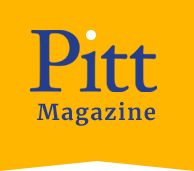After her parents left Liberia to escape its expanding civil war, Peace Adzo Medie grew up with her grandmother in Ho, in southeastern Ghana, West Africa. Her grandmother, Juliana, built a reading bubble around the little girl. If Peace had a book, she’d shoo away family members and free her granddaughter from housework and other responsibilities so she could melt into her reading.
Though the grandmother couldn’t read, literacy was a gift she gave to Medie. At 10 years old, after she’d read all the books in her local library, Medie came home and wrote her own. Juliana smiled as this early habit carried her granddaughter to the University of Ghana and into the universe of being an accomplished scholar and writer, able to share the complexities of her homeland culture across the world.
Medie’s first book, “His Only Wife,” was a New York Times Notable Book and a Time Magazine Must-Read Book of 2020.
 She followed that success with “Nightbloom,” which was longlisted for the prestigious Women’s Prize for Fiction in 2024. It’s the story of Akofa and Selassie, Ghanaian cousins who grapple with class divisions, secrets, old grudges and the meaning of truth. Medie (GSPIA ’12) says she’s lived with the characters for about a decade.
She followed that success with “Nightbloom,” which was longlisted for the prestigious Women’s Prize for Fiction in 2024. It’s the story of Akofa and Selassie, Ghanaian cousins who grapple with class divisions, secrets, old grudges and the meaning of truth. Medie (GSPIA ’12) says she’s lived with the characters for about a decade.
As a writer, Medie often composes on her laptop in the cool of the early morning and on weekends. And large parts of her identity as a woman, a Ghanaian and an African show up in her work. “However,” she says, “the stories I write are just everyday stories, but the places and issues I write about are very important to me.”
In 2004, Medie came to the United States, first earning a master’s degree at Ohio University and then a PhD from Pitt’s Graduate School of Public and International Affairs in 2012. Her interests and experiences and Pitt professors allowed her to develop ideas on justice and security for women. The research informed her developing fiction and her academic work. Today, she is an associate professor in England at the University of Bristol’s School of Sociology, Politics, and International Studies.
Medie continues to enter her reading bubbles, and when she does, she’s often thinking about the challenges that women face and the sociocultural barriers that silence them.
“I started having these thoughts as a student,” Medie says, “and now I explore them in my research and there are nuggets of them throughout my fiction.”
More recommended reading
Ms. Alberta: Feline Barn Manager (Independent)
Ms. Alberta is the curious, fluffy, brown-and-white feline barn manager for Mama’s farm in western New York. In exchange for supervising the barn, Mama feeds Ms. Alberta and scratches her head. One day, Mama invites Ms. Alberta to live in the big house, but Iggy, a stout, floppy-eared dog, barks anxiously when Ms. Alberta gets close. Drawing inspiration from her own beloved pets, Diana Tuorto (A&S ’02), in her sixth children’s book, paints a heartwarming story of finding friendship across differences, offering a reminder that new experiences can be scary, but overcoming your fear can lead to good things.
Discordant (Autumn House Press)
“Another Country” is a gritty, fearless poem that employs a variety of tropes to, among other things, challenge capitalism,  police aggression and the loss of privacy and question who gets to belong in America. It is one of 40 poems and story-poems that Richard Hamilton, a writing fellow with Pitt’s Center for African American Poetry and Poetics, includes in his latest book, “Discordant,” which examines racism, class discrimination and increased authoritarian measures in the United States and abroad. Inspired by living and growing up in the Deep South and drawing from James Baldwin’s political sensibility and the Civil Rights movement, Hamilton creates bold poetic forms to explore life in modern America.
police aggression and the loss of privacy and question who gets to belong in America. It is one of 40 poems and story-poems that Richard Hamilton, a writing fellow with Pitt’s Center for African American Poetry and Poetics, includes in his latest book, “Discordant,” which examines racism, class discrimination and increased authoritarian measures in the United States and abroad. Inspired by living and growing up in the Deep South and drawing from James Baldwin’s political sensibility and the Civil Rights movement, Hamilton creates bold poetic forms to explore life in modern America. 
26 Ways to Come Home for the Holidays (Foxburg and Stern Books)
Jennifer Fickley-Baker (A&S ’01) — pen name Jennifer Joy — fondly remembers the adorned Kaufmann’s holiday windows she saw as a Pitt undergraduate. In her second novel, Fickley-Baker, a Florida-based public relations professional by day and writer by night, revives this spirit through Stella West, a young saleswoman at a prominent downtown department store. In 1942, when West lands the job of her dreams, the responsibility for maintaining the city’s biggest holiday tradition comes with it. From juggling a demanding Christmas dilemma to navigating a romance with a co-worker, Fickley-Baker reminds us that “the way out is the way through” in any situation.
—Nico Engvall



